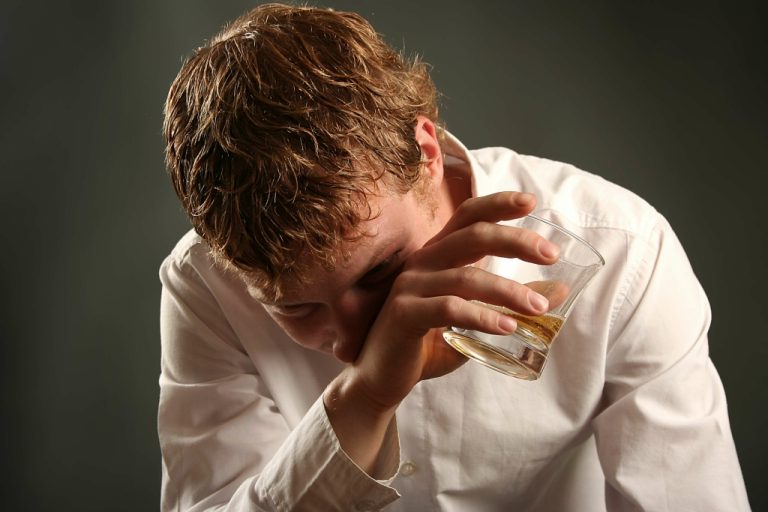Men binge drink more frequently, but women may experience stronger effects. Research by White and Tapert (2021) found that female binge drinkers are more vulnerable to alcohol-related brain damage and cognitive decline. Physiological differences also cause women to reach higher blood alcohol levels than men from similar amounts of alcohol. This increased BAC is generally reached when men have five or more drinks and women four or more drinks within a two-hour period.
Alcohol Rehab Near Me
Excessive alcohol consumption can lead to liver damage and various liver diseases, including fatty liver, alcoholic hepatitis, and cirrhosis that make the https://vanxilefpaintings.com/alcohol-misconceptions-can-alcoholism-be-cured/ liver unable to clear toxins from the blood. Liver diseases can be life-threatening and may require medical intervention, including liver transplantation in severe cases. In the United States, alcohol-related liver disease is the leading cause of liver transplantation and is responsible for nearly 50% of all liver disease deaths. There is a strong correlation between mental health disorders and substance abuse, including binge drinking. Individuals with conditions like depression, anxiety, bipolar disorder, or PTSD may use alcohol to self-medicate, leading to unhealthy drinking patterns. A history of trauma or adverse experiences, especially in childhood, can also increase the likelihood of using alcohol as a coping mechanism.

Health Fast Facts
The most recent edition of the “Diagnostic and Statistical Manual of Mental Disorders (DSM-5)” includes AUD as a mental health diagnosis. For example, a woman over 6 feet tall may be able to safely drink more alcohol than a woman who barely clears 5 feet. Similarly, a short man with a lower body weight may become intoxicated more quickly than a tall man with a higher body weight.
The Health Risks of Binge Drinking
- First, let’s take a look at several of the immediate impacts of binge drinking.
- Dr Afshar, a pulmonologist at Loyola University Chicago, found that the recovery time of victims of traumatic accidents was vastly reduced in those who had been drinking compared to those that hadn’t.
- During pregnancy, alcohol use increases the risk of fetal alcohol spectrum disorders, which refers to the collective lifelong physical, behavioral, and cognitive impairments that occur due to prenatal alcohol exposure.
- Many people believe that binge drinking protects them from the long-term effects of chronic liver disease.
A single episode raises blood alcohol concentration to dangerous levels, impairing judgment, coordination, and memory. Over time, weekly binge episodes can increase the risk of high blood pressure, liver damage, heart disease, and certain cancers, even in people who don’t drink daily. This critical developmental stage is where lifelong adult traits, e.g., talents, reasoning and complex skills mature; however, alcohol and in particular binge drinking may disrupt and interfere with this developmental process.

- Binge drinking is the act of men consuming five or more standard alcoholic drinks and women consuming four or more drinks within 2 hours.
- The National Helpline does not provide counseling, but it does connect callers with local resources such as counseling services, support groups, and treatment facilities.
- A person can be a binge drinker without being a heavy drinker, and vice versa.
- Neurologically, repeated binge drinking affects brain regions responsible for decision-making, impulse control, and memory.
- However, therapy is almost always used in conjunction with medical treatments.
- The NHS definition of binge drinking suggests that it involves consuming more than eight units in one session for men and six units in one session for women.
Make a pact with a friend to help each other abstain or moderate drinking, or arrange for a sober ride home. In some people, the initial reaction may feel like an increase in energy. But as you continue to drink, you become drowsy and have less control over your actions.
Is Binge Drinking Considered Alcoholism?
Easy access to alcohol, such as through social events, parties, bars, or stores, can make it more likely for individuals to engage in binge drinking. Factors like affordability, advertising, and the presence of alcohol in social settings can influence the accessibility of alcohol. Binge drinking behavior and heavy drinking patterns can lead to serious consequences, and continued frequency can lead to the development of an alcohol use disorder, which can become a life-threatening condition on its own. While frequent binge drinking does not mean a person has an alcohol use disorder, exhibiting Alcoholics Anonymous many of these signs could indicate a heightened risk. DWI/DUI events can impact almost every area of an individual’s life and are one of the leading causes of accidental death while binge drinking.
The National Institute on Alcohol Abuse and Alcoholism (NIAAA) defines how to avoid binge drinking binge drinking as drinking enough alcohol to raise one's blood alcohol concentration (BAC) to 0.08% or above. There is a misconception that infrequent binge-drinking episodes are harmless. So, binge drinkers tend to believe that they do not have problematic drinking habits. If they are unable to drink in moderation, rein them in by reminding them about the alcohol limits that they had set. Yes, binge drinking can cause alcohol withdrawal especially if the drinking episodes take place frequently.
